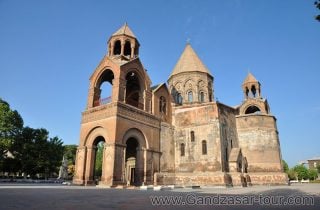The sight of Europe’s leaders kowtowing to Turkey is sickening: The Guardian

It is waging war on an ethnic minority, its riot police just stormed the offices of a major newspaper, its secret service faces allegations of arming Isis, its military shot down a Russian bomber – and yet Turkey wants to join the European Union. The country’s swift descent into despotism poses yet another existential problem for the west.
The sight of Europe’s leaders kowtowing to Turkey’s president, Recep Tayyip Erdoğan, in the hope he would switch off the flood of refugees to Greece, was sickening,’ writer and broadcaster at The Guardian Paul Mason said.
‘After the Turkish courts authorised police to seize the Zaman newspaper, tear-gassing its employees and sacking the editors, the new bosses immediately placed Erdoğan’s smiling picture on the front page. He has a lot to smile about.
Erdoğan’s mass support in Turkey is real. To the conservative heartlands, where Islam was suppressed for decades by one secular military regime after another, he initially seemed to have achieved an ideal stasis. The liberal, networked, progressive part of Turkey would leave the reactionary, religious, patriarchal part in peace, and vice versa. The Kurds would renounce guerilla warfare in favour of parliamentary opposition. Erdoğan would lead the country towards EU accession, at a pace slow enough to allow the obvious failings in democracy to be ignored.
But it has all gone wrong, and for the same fundamental reason that Assad’s regime in Syria collapsed: the unwillingness of educated youth to be ruled by simpletons running a “benign” police state.
The revolts that swept Turkey’s cities in June 2013 were triggered by the inability of Erdoğan and his old-man’s form of Islam to tolerate the basic microfreedoms that the younger generation want: the right to drink alcohol on campus, the right to uncensored social media, the right to protest peacefully about the same things European kids protest about – in the case of Gezi Park, the bulldozing of green space for a shopping mall.
Since then, Erdoğan has overcome all obstacles. The protest was suppressed by the simple method of firing US-made tear gas canisters into the crowd and laying waste to the urban areas of the Kurdish minority, who had joined the struggle.
Then Erdoğan got himself made president. And having narrowly lost his parliamentary majority in June 2015, he regained it late last year after a campaign that left the offices of the pro-Kurdish HDP party burned out in several cities.
Simultaneously, the Turkish military provoked an end to a three-year ceasefire with the Kurdish PKK, unleashing the army into the Kurdish towns of southern Turkey on a scale that has left some the mirror image of burned-out Syrian towns just across the border.
But all this is nothing compared to the strength of the hand Erdoğan has yet to play. With failed or failing states now in Afghanistan, Yemen, Iraq and Syria, the more Turkish democracy fails, the more the west has to support him. And the more the European Commission, in particular, hangs on to the conceit that Turkey will one day join the EU, the more it strengthens forces in Europe who want to leave the union altogether.
Transcripts leaked to a Greek website last month appeared to show Erdoğanovertly threatening Europe with an uncontrolled flood of refugees unless he is given money and rapid accession to the EU. Although they were given credence by some news agencies, the transcripts have the ring of black propaganda of the kind Erdoğan’s newest enemy, the Russian secret service, is adept at producing. Real or fabricated, the tragedy is that they cannot be far from the truth: Europe is already turning a blind eye to the erosion of democracy, to collusion with people traffickers, and to military action against civilians.
What happens next must be done calmly and proportionately.
The citizens of the EU have a right, first of all, to demand honesty from their own governments, and the commission itself. The EC’s “progress report” in November was an exercise in hypocrisy: while noting the slide to despotism, censorship and brutality, the report praised Turkey for its economic progress. Imagine what the same rapporteurs might have made of an accession request by Mussolini’s Italy.
The critical question is not, as the racists of eastern Europe ask, “Can 75 million Muslims join Europe?” It is: can a state so fundamentally in breach of theCopenhagen criteria for EU membership remain in any kind of accession process? The answer must clearly be no – and once Erdoğan is told so, the EU has a duty to offer a programme of support to the secular democratic forces that need to come to power in order for accession talks to be resumed. The commission – which had no problem telling Greeks which way to vote in July 2015 – would surely have no problem supporting democratic parties against repressive ones in Turkey.
That would leave Erdoğan in strategic trouble. But it would not immediately solve the situation in the Aegean. It would require Europe to double-down on its strategic commitment to Greece, with border forces, debt relief, aid and solidarity.
To those in Europe wishing to demonstrate to a wavering Britain why we need the EU, there could not be a better opportunity. It’s a chance for a clear condemnation of the breaches of human rights; for clear action in support of Greece, a member of the union, against implicit threats by a non-member; and for centralised action to deal with any flood of refugees Erdoğan wishes to unleash.
The prospect will be viewed with dismay by the centrist political class that helped create this mess. It brings them face to face with a choice they do not want to make: democratic values over market logic; moral decisiveness over the illusion that everything will be all right,’ Paul Mason concluded.

























